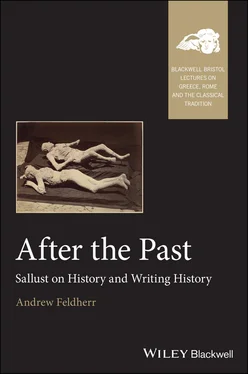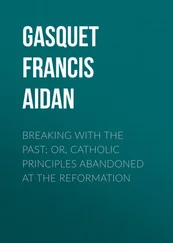No one mastered the new opportunities for self-fashioning thrown up by this cultural revolution more comprehensively and successfully than M. Tullius Cicero. As he had shown how rhetorical brilliance could propel someone from the peripheries of power to the highest office of all, his consulate of 63 bce, so, during the many periods of exile that followed on from his success, he relied on his writings about philosophy and rhetoric, not to speak of the published versions of speeches and likely thousands of letters, to keep his voice before the public. Indeed, the proliferation of philosophical writings from the last years of Cicero’s life constitute, in the words of Yelena Baraz (2012), nothing less than “a written republic,” projecting new models of social relations and personal ethics all voiced by Cicero and his circle of friends. These function not only as author, audience, and distribution network for the publications themselves but live also as characters within their fictions. 12By these means, Cicero turned what would ordinarily have been considered as the products of otium , that off-duty time that could only be defined negatively by a public man’s not doing his real “work” of exercising power, into multifaceted expressions of the status he had earned in public life. 13
A pressure to compare Cicero with Sallust arises from the historian’s first choice of subject. Cicero had presented the expulsion of Catiline as his greatest deed, and one arguably accomplished by the power of his rhetorical voice. Yet, despite the fact that Cicero’s speeches were an inevitable source for, and alternative articulation of, Catiline’s conspiracy, the orations as historical events are scarcely mentioned in Sallust’s narrative, and, in a work that contains the highest proportion of direct speech of any ancient historical text, the orator hero remains silent. What this treatment of Cicero contributes to Sallust’s own self-presentation as a writer will be considered more fully in chapters 2and 6. But if Cicero’s authorial presence obviously shadows Sallust’s emergence as a writer, we can gain an important complementary perspective on the historian’s literary career by comparing him to another Roman writer who, though some sixteen years younger, began his first major work at almost exactly the same moment as Sallust. Vergil’s Eclogues predict the strategies of a new generation of writers who faced an entirely different challenge from Cicero. As opposed to statesmen using literature to extend the presence of an identity forged in the “real world” of politics, Vergil and Horace owed their status and identity to their writings alone. If Cicero, not only in his speeches but in his philosophical writings as well, makes it easy for his audience to imagine a real space and occasion within which the texts before him were once performed, the Eclogues frustrate efforts to place them on any map. And yet the fictive speakers inhabiting this imaginary world have also made it possible to construct an identity for their historical author. 14Although the speaker of the first Eclogue is a purely textual creature, whose actions and attitudes are largely structured by the audience’s knowledge of earlier bucolic poetry, he nevertheless also becomes a mouthpiece for the author to address topics and figures from the world of the audience’s immediate experience. Thus, where the Ciceronian persona moves from reality to text, Vergil’s in the Eclogues travels in the opposite direction.
As we shall see, Sallust’s presence in the Catiline stands poised between these two trajectories. Like Cicero, he too had had a multifaceted public career, including the offices of tribune and, after Caesar’s victory, of governor of the province of Africa. 15There was, therefore, a Sallust before there was a Catiline . Yet the story he tells about himself in that work is a tissue of literary allusions ( Cat . 3.3–4.2). 16We can easily explain why Sallust’s self-presentation might require particular artifice: unlike Cicero’s, Sallust’s career included not only exile but disgrace and featured charges of extortion that would hardly add authority to the historian’s attacks on avarice. But a decision to explain Sallust’s literary strategy by reference to his historical biography itself begs a question that we would never feel the need to ask when reading Cicero: Is the author of this text to be identified with the Sallust we know from his public actions? And indeed the impulse to explain the text by reference to the actual misfortunes of the author (Sallust had to write this way because of his disgrace) may be balanced by an opposite tendency to redeem the reputation of the historical Sallust by attributing to him the much more laudable moral perspectives he voices as a historian. Such judgments equally involve the reader in deciding where the author stands in relation to historical reality.
The reason Sallust has not generally figured as he should in the story of how the boundaries of Latin literature were renegotiated in this era is, I suspect, the genre in which he wrote. Historiography has long been considered one of the rare forms of literary expression that were appropriate for members of Rome’s political elite to engage in seriously, as opposed to as pastimes for their leisure. Thus the challenge that Cicero faced of reconciling otium with public rank might seem not to have existed, at least to the same degree, for a historian. 17Yet, even within this generic tradition, the defense of history as a product of otium had an influential precedent in the opening of Cato’s Origines (F2 FRHist ). 18From this perspective, far from being exempt from cultural pressures to proclaim its public utility, historiography helped establish the imperative of such positioning, and Cato’s gesture would become a point of reference in winning favor for other practices associated with leisure (cf. Cic. Planc . 66). Even so, it is striking that Sallust seems to exaggerate the dilemma, and indeed the paradox, of construing historiography as distinct from the res publica and as a mode of participation. In the Catiline , as I shall argue in Chapter 2, his assertions of withdrawal from public life can also be read as mapping a return to the res publica through writing. And, in the introduction to his second treatise, the Jugurtha , he rejects earlier apologies for the virtus of history in favor of confronting hostile readers with the claim that “greater advantage will come to the state from my leisure ( otio ) than from others’ occupations” ( negotiis , Jug . 4.4). Here the very notion that writing history is a “pastime” is subjected to attack by being placed in the mouths of his opponents. 19Both the ambiguities of the Catiline preface and the staged confrontation at the opening of the Jugurtha not only make clear that the place of historiography in the hierarchy of occupations was available for debate; they compel readers to judge whether it belongs in the realm of leisure or duty. 20
Such questions about the social value of history combine with aspects of its reception, and with its intrinsic literary properties, to make it, in fact, a genre ideally suited for scrutinizing the place of literature in Roman public life. While the Eclogues offer glimpses of historical figures, and the real situation of wartime Italy fades in and out of view, reality is ideally a constant presence to history’s audience, who, unlike readers of poetry, were expected in the words of Cicero to relate everything they read to truth. 21But if public life formed the subject matter of history and if it could be lent authority by the political distinction of its authors, what we know about its reception make it indistinguishable from philosophical dialogues or most other literary forms. We have no evidence for any officially sanctioned performances of historical works during the republic. 22The one contemporary glimpse we have of the audience for a reading of history, in fact, specifically notes the genre’s appeal precisely to those whose rank or age made it impossible for them to take part in any of the deeds described (Cic. Fin . 5.51–2). Indeed Quintilian, writing over a century later, speaks of Sallust’s style in particular as unsuitable for actual rhetorical performances because its concision demands too much expertise and attention on the part of the reader, and is so ideal for “ears at leisure” ( aures vacuas , Inst . 10.1.32). 23In both these respects the remoteness of the historical text as an artifact exists in tension with the object of its representation. So too in more abstract terms, I suggest, the experience of reading history makes constantly available the contrast between the historical events it conveys and its own status as an artistic representation. 24Such an approach to reading history explains how the conceptual opposition between history as a vehicle for experiencing the past and as a product of ex post facto reflection translates into a very Roman, and very Sallustian, concern about whether the writer of history was in fact a man of action. The mimetic powers of the text balance its self-evident verbal crafting, especially when the style is as distinctive and as unrhetorical, in Quintilian’s sense, as Sallust’s.
Читать дальше












